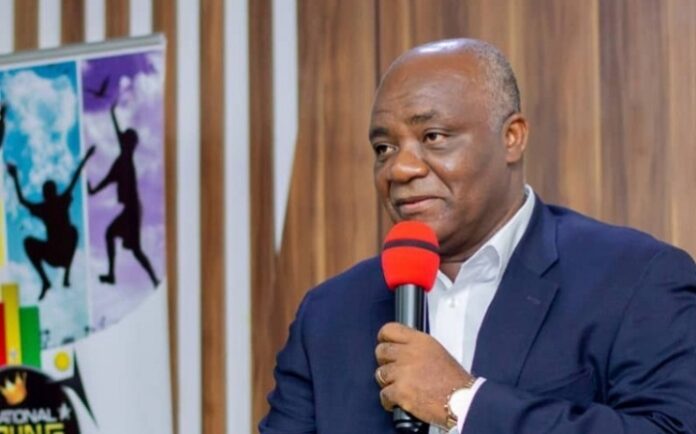
Flagbearer hopeful of the governing New Patriotic Party (NPP) Francis Addai Nimoh says he has no idea what the much-touted Danquah-Busia-Dombo tradition in the NPP is about.
According to him, nothing like that exists in the NPP.
He revealed this in an interview with Bonohene Baffour Awuah host of Ghana Kasa show on Kasapa 102.5FM/Agoo Tv Monday.
The former Member of Parliament for Mampong in the Ashanti Region said he does not know where that name came from and even NPP’s constitution does not recognize such a tradition.
He added that it’s just a slogan or a mantra.
“I don’t know where this Danquah, Busia, Dombo tradition is coming from. What I know is the party called New Patriotic Party. The founder fathers of this party were in the Popular Front Party (PFP) and the United National Convention (UNC) which existed in 1979. These two parties most of its members were from the United Party (UP) led by Dr. Busia.
“If the party can take a decision that these three names must find expression in the party’s constitution, then we must amend it and include these names and state that this is the tradition of the party. But if there’s nothing like that in our party’s constitution, then it remains just a slogan or mantra. It must be a constitutional matter, we shouldn’t just be saying Danquah, Busia, Dombo tradition.”
Proponents of the Danquah-Dombo-Busia tradition say it is the oldest surviving political tradition in Ghana that dates as far back as 1947, before Ghana attained independence.
The main political figures this tradition stems from are Dr JB Danquah (founder of the United Gold Coast Convention (UGCC)), Dr Kofi Abrefa Busia and Simon Diedong Dombo.
Although this tradition dates as far back as 1947, it came to the limelight in 1957 after series of events that led to the merger of the then opposition parties to form the United Party (UP) due to the passage of the Avoidance of Discrimination Act (ADA) that banned all political parties that were formed along tribal, regional and religious lines under the Convention People’s Party (CPP). This tradition remains the cornerstone of the current New Patriotic Party.



